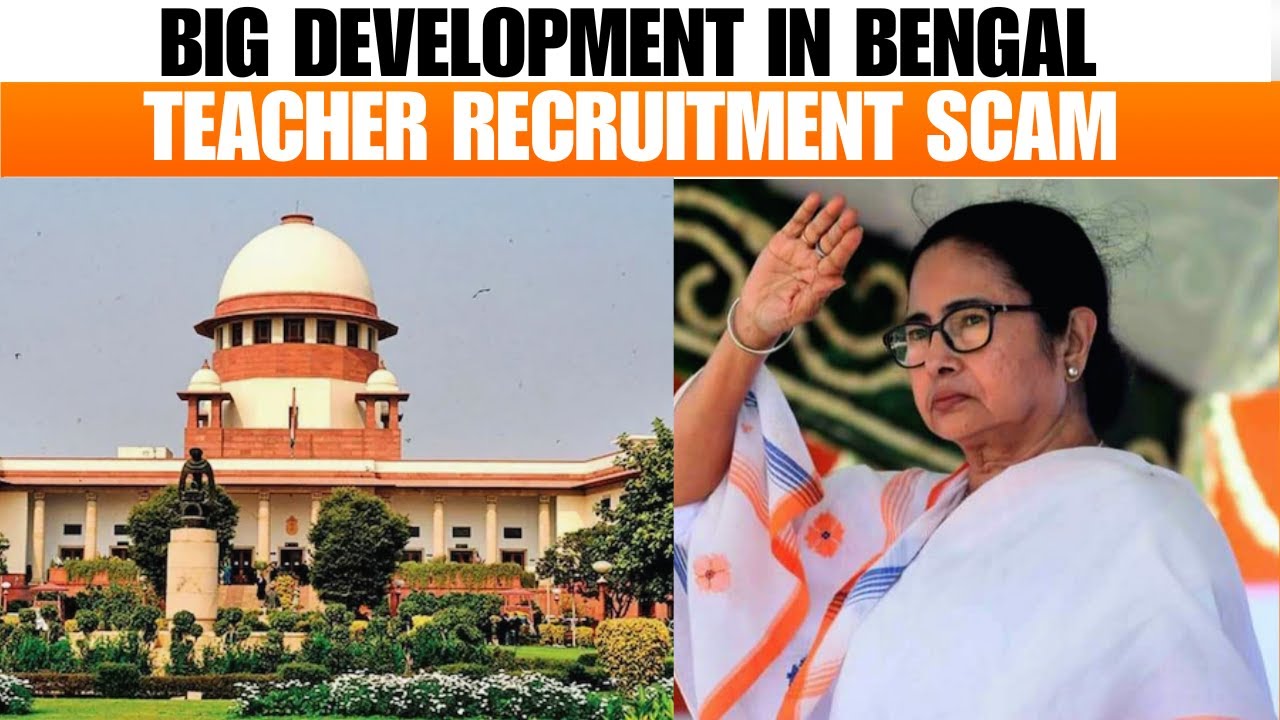- Courses
- GS Full Course 1 Year
- GS Full Course 2 Year
- GS Full Course 3 Year
- GS Full Course Till Selection
- Online Program
- GS Recorded Course
- NCERT (Recorded 500+ Hours)
- Polity Recorded Course
- Geography Recorded Course
- Economy Recorded Course
- AMAC Recorded Course
- Modern India, Post Independence & World History
- Environment Recoded Course
- Governance Recoded Course
- Science & Tech. Recoded Course
- International Relations and Internal Security Recorded Course
- Disaster Management Module Course
- Ethics Recoded Course
- Essay Recoded Course
- Current Affairs Recoded Course
- CSAT
- 5 LAYERED ARJUNA Mentorship
- Public Administration Optional
- ABOUT US
- OUR TOPPERS
- TEST SERIES
- FREE STUDY MATERIAL
- VIDEOS
- CONTACT US
Supreme Court Cancels Appointment of Over 25,000 Teachers and Staff in West Bengal
Supreme Court Cancels Appointment of Over 25,000 Teachers and Staff in West Bengal
08-04-2025

- In the 1st week of April 2025, The Supreme Court of India upheld the Calcutta High Court’s decision to cancel over 25,000 appointments made by the West Bengal School Service Commission (WBSSC) in 2016.
- The Court found the entire selection process to be deeply corrupted and manipulated, describing it as "tainted beyond resolution."
Background :
- The case began when it was revealed that OMR answer sheets used in the selection process had been tampered with, leading to discrepancies in the results.
- The Calcutta High Court ruled to cancel all appointments, citing widespread fraud and irregularities.
- The Supreme Court, while agreeing with this decision, also laid down four key principles for handling future challenges related to government recruitment.
- Key Principles Laid Down by the Court:
- In its judgment, the Supreme Court also laid down 4 key principles for handling challenges in government recruitment processes:
- If a thorough investigation reveals manipulation, the entire recruitment process must be canceled. This principle was supported by past judgments, such as Sachin Kumar v. DSSSB 2021.
- When possible, efforts should be made to separate guilty (tainted) candidates from innocent (untainted) ones. However, this must align with equity and fairness under Article 16(1) and Article 14 of the Constitution.
- The decision to cancel the entire recruitment process must be based on substantial material gathered through a fair investigation, which does not need to prove malpractice beyond a reasonable doubt but should show probable systemic issues.
- If deep manipulation is confirmed, maintaining the integrity of the process is more important than any inconvenience caused to untainted candidates.
- These principles were supported by previous case law, including State of Tamil Nadu v. A. Kalaimani (2021) and Bihar School Examination Board v. Subhas Chandra Sinha.
- In its judgment, the Supreme Court also laid down 4 key principles for handling challenges in government recruitment processes:
- Cancellation of Appointments:
- The Court ordered the cancellation of all appointments made through this manipulated process, including those of candidates who were not involved in fraud.
- While untainted candidates did not have to repay salaries, they would still lose their jobs, as the entire process was deemed invalid.
- Reapplication Process:
- Some candidates had previously worked in other government departments or autonomous bodies.
- These individuals were allowed to reapply to their old departments and resume work with their seniority and entitlements preserved.
- The period between termination and rejoining would not be considered a break in service, and these candidates would still be eligible for promotions and increments.
- Special Provisions for Disabled Candidates:
- A disabled candidate was allowed to continue in service, while other differently-abled candidates were not granted the same benefit to avoid contradicting legal principles.
- Disabled candidates not involved in fraud were allowed to apply again in the fresh recruitment process with age relaxation and other accommodations.
- Issues with the WBSSC:
- The Supreme Court severely criticized the WBSSC for destroying critical OMR answer sheets without keeping scanned versions on their servers, suggesting a cover-up of fraud.
- The Court found discrepancies between the recovered OMR sheets and official records, confirming that results were manipulated.
- The WBSSC had also appointed people who were not on the official list and made appointments after the panel's validity had expired.
- Next Steps:
- A new recruitment process will be carried out, and candidates will need to undergo fresh exams and a fair assessment.
- The CBI investigation into the creation of supernumerary posts (unauthorized posts) will continue, with the Supreme Court to hear the matter separately.
In conclusion, The ruling highlights violations of Articles 14 and 16 of the Indian Constitution, which guarantee fairness and equality in government appointments. It shows the importance of transparency in recruitment processes and the need to hold accountable those who manipulate such systems.
Article 14: Equality Before the Law
Article 16: Equality of Opportunity in Public Employment
|




